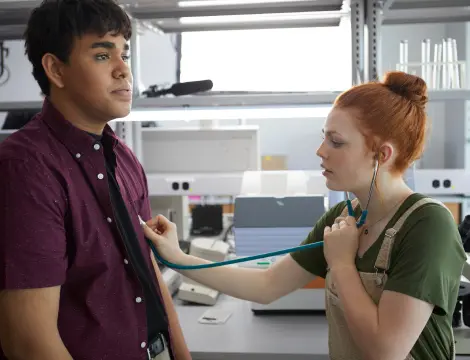CAREER AND COLLEGE PREP
Health Science & Medical Technology
Make a Difference
What if high school was all you needed to get started on your dream job? Many healthcare careers don’t require a college degree. You can begin making a difference sooner than you thought!
Which pathways are offered?
Medical Assistant—Students develop the knowledge base, skills, and behaviors that entry-level medical assistants need to succeed. Students are introduced to anatomy and physiology, diagnostic tests, diseases and disorders, treatments, and nutrition.
Medical Coding—This pathway prepares students to manage patient data and information, financial information, and use computer applications related to healthcare processes and procedures.
What types of jobs can my student learn about and prepare for?*
Examples of jobs include:
- Admitting clerk
- Athletic trainer
- Massage therapist
- Medical assistant
- Medical records technician
- Medical and health services manager
*Some of these jobs require additional education and certifications once a student graduates from high school.

What could my future look like in this career field?**
**Data is from Lightcast and is updated frequently.
Which potential pathway certifications and exams can my student prepare for?
- ACT National Career Readiness Certification (NCRC)
- Certified Clinical Medical Assistant (CMA)
- CPR and AED Certification
- First Aid Certification
- IC3 Digital Literacy–Computer Fundamentals
- Medical Coding Certification
- Microsoft Office***
- Basic Life Support (BLS)
***Many Microsoft®️ Office certificates can be earned after completing one course. Other certificates require more classes to be better prepared, and students who participate in the program for at least two years will have further preparation for certification testing.
 EN
EN ES
ES